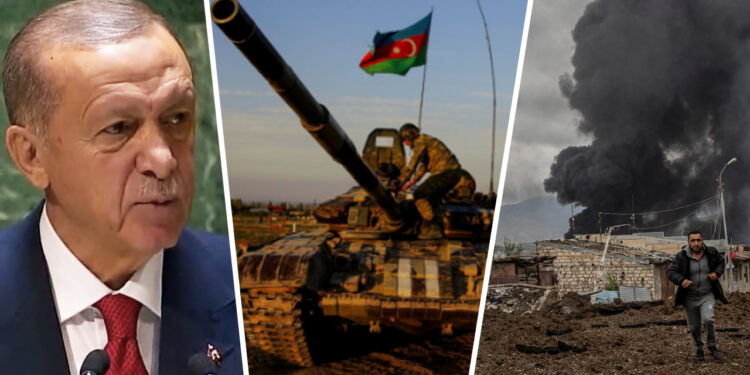The self-declared republic of Nagorno-Karabakh, known as Artsakh to Armenians, will cease to exist by January 2024, following its defeat by Azerbaijan, Samvel Shahramanyan, the leader of the Republic of Artsakh, announced on Thursday.
Shahramanyan explained that this decision was reached as part of an agreement between Artsakh and Azerbaijani authorities, which was mediated by the Russian peacekeeping contingent. The agreement primarily focused on ensuring the safety and vital interests of the people of Artsakh and included provisions for the free, voluntary, and unrestrained passage of residents, including armed servicemen, through the Lachin corridor.
Ethnic Armenians in Nagorno-Karabakh had defended the breakaway statelet for three decades.
An estimated 70,500 Armenians had fled the region as of Thursday after Azerbaijan launched a lightning offensive on 20 September. The offensive ultimately led to Azerbaijan’s control over Nagorno-Karabakh.
For Azerbaijan and its president, Ilham Aliyev, the outcome represents the successful restoration of sovereignty over a region internationally recognized as part of its territory. However, for Armenians, it signifies a painful defeat and national tragedy.
Armenian Prime Minister Nikol Pashinyan has accused Azerbaijan of ethnic cleansing, stating, “Analysis of the situation shows that in the coming days there will be no Armenians left in Nagorno-Karabakh.”
Azerbaijan has denied these accusations, asserting that it is not forcing people to leave and vowing to peacefully reintegrate the Karabakh region while ensuring the civic rights of ethnic Armenians.
However, Karabakh Armenians remain sceptical of these assurances, given a history of violence between the two sides, including two wars since the dissolution of the Soviet Union. Fearing for their safety, many have fled en masse through Azerbaijan on the mountainous road that connects Karabakh to Armenia.
Nagorno-Karabakh is geographically situated within Azerbaijan’s territory; however, it has functioned autonomously for decades, maintaining its de facto government.

The conflict in Nagorno-Karabakh reached a turning point after the 2020 Second Nagorno-Karabakh War, and in December 2022, Azerbaijan imposed a blockade on the Republic of Artsakh, isolating its ethnic Armenian residents from external interactions due to the strategic closure of the Lachin Corridor.
Turkey, a staunch supporter of Azerbaijan throughout the conflict, has continued to back Azerbaijan’s actions in the region. Turkish President Recep Tayyip Erdoğan emphasised Turkey’s stance during his address to the 78th session of the United Nations General Assembly last week, stating that Karabakh rightfully belongs to Azerbaijan and that any attempt to impose a different status would not be accepted.










